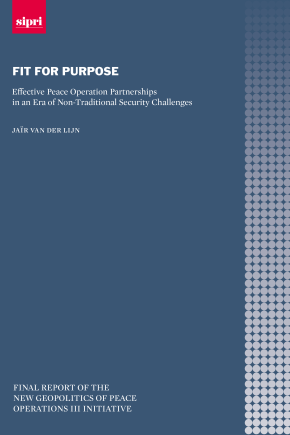Fit For Purpose: Effective Peace Operation Partnerships in an Era of Non-Traditional Security Challenges
The third phase of the New Geopolitics of Peace Operations initiative looks at how multilateral peace operations relate to non-traditional security challenges: terrorism and violent extremism, organized crime, irregular migration and human trafficking, environmental degradation and resource scarcity, and epidemics and pandemics.
These challenges are often of great relevance to the work of peace operations, but such missions may not be the right tool for addressing them. The challenges and their redress are by definition multidimensional and cross-cutting, and often cross-border in character. They therefore require close coordination and cooperation between the United Nations and different partners in the field. At the same time, the multidimensional peace operations landscape is become increasingly diffuse. The New Agenda for Peace, Security Council Resolution 2719 of 21 December 2023 on the financing of African Union-led peace support operations and the upcoming Summit of the Future (22–23 September 2024) seem to hint at a continuation of this trend. Based on dialogue meetings, interviews and a literature and document review, the study examines the work of multilateral peace operations on non-traditional security challenges, the advantages and disadvantages of their involvement and how operations collaborate, cooperate and coordinate with the various other actors involved.
1. Introduction
2. Non-traditional security challenges in peace operations
3. The opportunities and challenges for peace operations when addressing non-traditional security challenges
4. Cooperation and coordination
5. Conclusions
6. Policy implications and recommendations

